Episodes
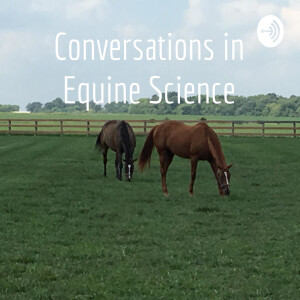
Friday Apr 16, 2021
Friday Apr 16, 2021
Research Resource:
Ramsey, S. (2019). Hoof Wall Separation Disease: Animal Welfare and Ethical Risk to the Irish Connemara Pony. Southern Institute of Technology, Technical Report.
Open Source.
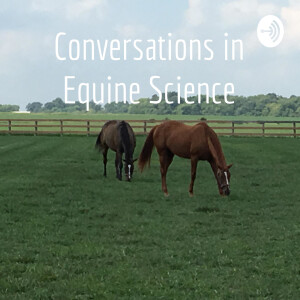
Friday Apr 09, 2021
Friday Apr 09, 2021
Rørvang MV, Nielsen BL and McLean AN (2020) Sensory Abilities of Horses and Their Importance for Equitation Science. Front. Vet. Sci. 7:633.
Link: https://www.frontiersin.org/articles/10.3389/fvets.2020.00633/full?&utm_source=Email_to_authors_&utm_medium=Email&utm_content=T1_11.5e1_author&utm_campaign=Email_publication&field&journalName=Frontiers_in_Veterinary_Science&id=561737&fbclid=IwAR2LtOmCPdrZ
(Open Source)
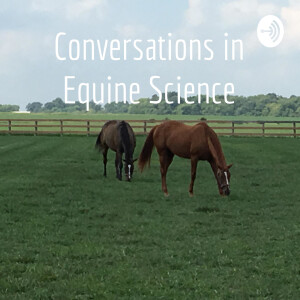
Friday Apr 02, 2021
Friday Apr 02, 2021
Request a talk/consultation with Carole at carolejohnston21@gmail.com
Research on balance and the brain:
Surgent OJ, Dadalko OI, Pickett KA, Travers BG (2019). Balance and the brain: A review of structural brain correlates of postural balance and balance training in humans. Gait Posture. Jun;71 pp. 245-252.
https://pubmed.ncbi.nlm.nih.gov/31082657/
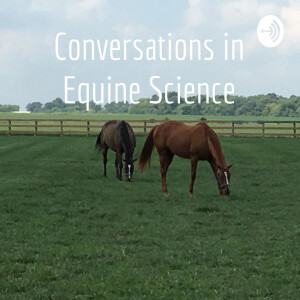
Friday Mar 26, 2021
Friday Mar 26, 2021
Research:
Elmeua González M, Šarabon N (2020) Muscle modes of the equestrian rider at walk, rising trot and canter. PLoS ONE 15(8).
https://doi.org/10.1371/journal.pone.0237727.
Venkatraman, A., Edlow, B. L., & Immordino-Yang, M. H. (2017). The Brainstem in Emotion: A Review. Frontiers in neuroanatomy, 11, 15. https://doi.org/10.3389/fnana.2017.00015
https://www.ncbi.nlm.nih.gov/pmc/articles/PMC5343067/
Dhaliwal, M.S., Henson, Dayon. EFFECT OF A DERMATOME NEUROPOINT ACTIVATING SOCKS ON OVERALL BALANCE AND STABILITY USING THE SWAY MEDICAL APPLICATION. California Sports Institute, Clinical Studies pp. 1-7.
https://voxxlife.com/wp-content/uploads/2019/12/2.-Independent-Study-Impact-of-Voxx-HPT-on-Balance-Stability-and-Strength.pdf
Kennedy, Paul and Tim Inglis (2002). Distribution and behaviour of glabrous cutaneous receptors in the human foot sole. Journal of Physiology, 538.3. pp. 995-1002.
https://111115011.voxxlife.com/wp-content/uploads/2019/12/3.-Distribution-of-Mechanoreceptors-in-Human-Foot-Sole-University-of-British-Columbia-Canada.pdf
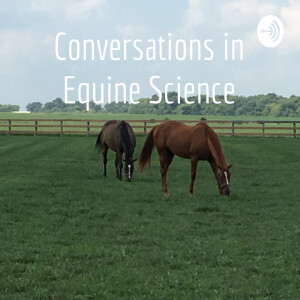
Friday Mar 19, 2021
Friday Mar 19, 2021
Resources:
Julliand, S., Dacremont, C., Omphalius, C., Villot, C. and Julliand, C. (2019). Association between nutritional values of hays fed to horses and sensory properties as perceived by human sight, touch and smell. Animal, Vol 13 (9), pp. 1834-1832.
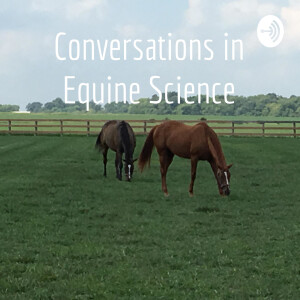
Friday Mar 12, 2021
Friday Mar 12, 2021
Research Resources:
Gillis, C. (1997) Rehabilitation of tendon and ligament injuries. Proc. Am. Ass. equine Practnrs. 43, 306‐ 309.
Pugliese BR, Brisbois AL, Size KJ, et al (2021). Biomechanical and wearability testing of novel legwear for variably limiting extension of the metacarpophalangeal joint of horses. Am J Vet Res; (82).
H.H.F. Buchner, H.H.C.M. Savelberg, H.C. Schamhardt, H.W. Merkens & A. Barneveld (1994) Kinematics of treadmill versus overground locomotion in horses, Veterinary Quarterly, 16:sup. 2, pp. 87-90
All of these are accessible on Google Scholar (Open Source).
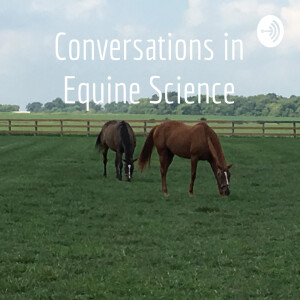
Friday Mar 05, 2021
Friday Mar 05, 2021
Link to the open source research:
McVey, Rosalie Jones. (2021). An Ethnographic Account of the British Equestrian Virtue of Bravery, and Its Implications for Equine Welfare. Animals, Vol, 11, 188.
https://doi.org/10.3390/ani11010188
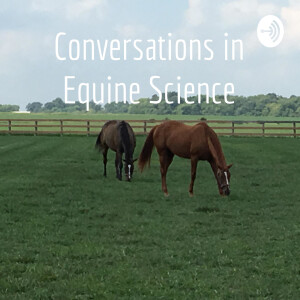
Friday Feb 26, 2021
Friday Feb 26, 2021
Diakakis, N., Tyrnenopoulou, P. (2017). Correlation between equine colic and weather changes. Journal of the Hellenic Veterinary Medical Society, Vol. 68, pp. 455-466.
Cianci, J., Boyle, A.G., Stefanovski, Darko, Biddle, A.S. (2021). Lack of Association Between Barometric Pressure and Incidence of Colic in Equine Academic Ambulatory Practice. Journal of Equine Veterinary Science, Vol 97.
Fintl C, Hudson NP, Handel I, Pearson GT (2016). The effect of temperature changes on in vitro slow wave activity in the equine ileum. Equine Veterinary Journal Vol 48. (Open Access)
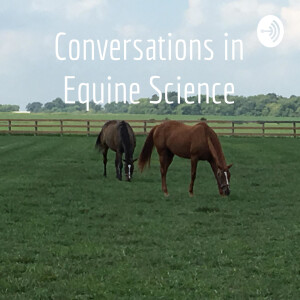
Friday Feb 19, 2021
Friday Feb 19, 2021
Research Reference:
Trösch, M., Pellon, S., Cuzol, F. et al. (2020). Horses feel emotions when they watch positive and negative horse–human interactions in a video and transpose what they saw to real life. Anim Cogn 23, pp. 643–653
Link:
https://link.springer.com/article/10.1007/s10071-020-01369-0?fbclid=IwAR278hOdLV51HytST89t4NF1C2mFiSQWWw75hq3H_IoLNnkWIiinCj1cqsM#citeas
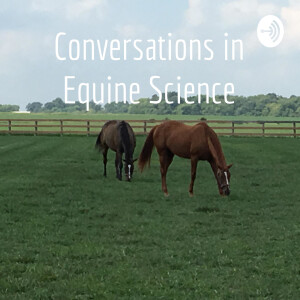
Friday Feb 12, 2021
Friday Feb 12, 2021
Research Reference:
Lundberg Paulina, Hartmann Elke, Roth Lina S.V. (2020). Does training style affect the human-horse relationship? Asking the horse in a separation–reunion experiment with the owner and a stranger. Applied Animal Behaviour Science, Volume 233, December.
Link to Research Paper:
https://www.sciencedirect.com/science/article/pii/S016815912030232X?via%3Dihub
Link to Daily Mail Article:
https://www.dailymail.co.uk/sciencetech/article-8909547/Horses-DONT-form-attachment-bonds-owners-study-finds.html





